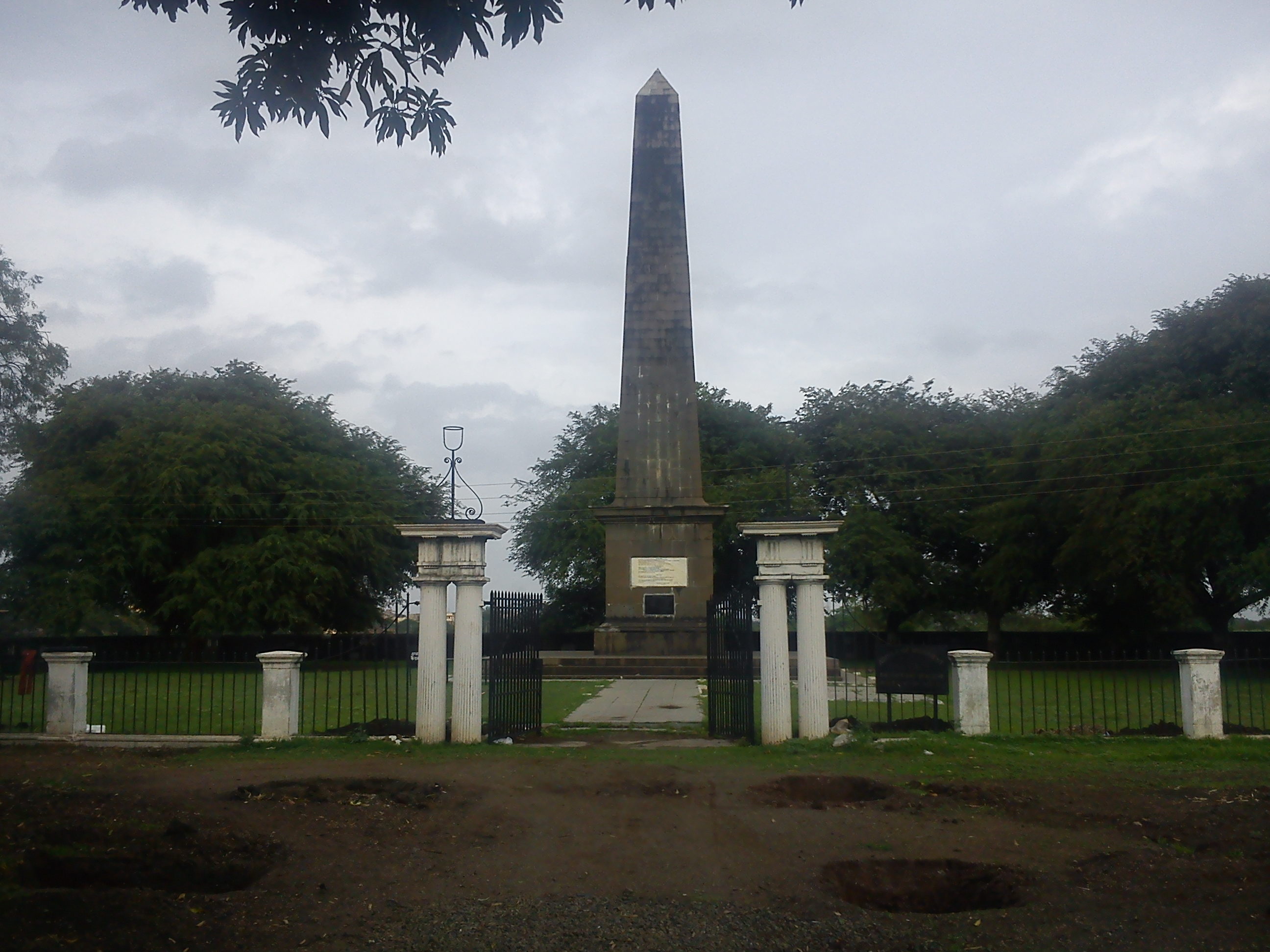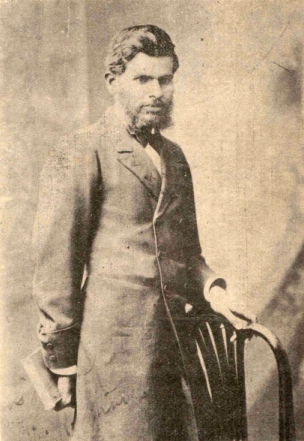|
Kisan Faguji Bansod
Kisan Faguji Bansod (, 1879–1946) was a leader of Dalit movement in pre-independence India. Bansod was born on 18 February 1879 in a Mahar family at Mohapa village near Nagpur. Influenced by the Bhakti cult, he was a proponent of upliftment of dalits within the fold of Hinduism. He was an advocate of education for dalit boys and girls. Therefore, he established one Chokhamela girls' school at Nagpur. He was also aware of importance of the press to create awareness among the dalit community. He started his own press in 1910 and published the journals ''Nirashrit Hind Nagarik'', ''Vital Vidhwansak'', ''Majur Patrika'', and ''Chokhamela''. He was one of the secretaries of All India Depressed Classes Conference held at Nagpur in 1920. Bansod was influenced by the works of Brahmo Samaj and Prarthana Samaj. He attended the annual function of Prarthana Samaj in 1905 at Mumbai. He was also associated with Vitthal Ramji Shinde, founder of Depressed Classes Mission. Though he was a s ... [...More Info...] [...Related Items...] OR: [Wikipedia] [Google] [Baidu] |
Dalit
Dalit (from sa, दलित, dalita meaning "broken/scattered"), also previously known as untouchable, is the lowest stratum of the castes in India. Dalits were excluded from the four-fold varna system of Hinduism and were seen as forming a fifth varna, also known by the name of ''Panchama''. Dalits now profess various religious beliefs, including Hinduism, Buddhism, Sikhism, Christianity, Islam. Scheduled Castes is the official term for Dalits as per the Constitution of India. History The term ''Dalit'' is a self-applied concept for those called the "untouchables" and others that were outside of the traditional Hindu caste hierarchy. Economist and reformer B. R. Ambedkar (1891–1956) said that untouchability came into Indian society around 400 CE, due to the struggle for supremacy between Buddhism and Brahmanism (an ancient term for Brahmanical Hinduism). Some Hindu priests befriended untouchables and were demoted to low-caste ranks. Eknath, another excommunicated Brahmin ... [...More Info...] [...Related Items...] OR: [Wikipedia] [Google] [Baidu] |
India
India, officially the Republic of India ( Hindi: ), is a country in South Asia. It is the seventh-largest country by area, the second-most populous country, and the most populous democracy in the world. Bounded by the Indian Ocean on the south, the Arabian Sea on the southwest, and the Bay of Bengal on the southeast, it shares land borders with Pakistan to the west; China, Nepal, and Bhutan to the north; and Bangladesh and Myanmar to the east. In the Indian Ocean, India is in the vicinity of Sri Lanka and the Maldives; its Andaman and Nicobar Islands share a maritime border with Thailand, Myanmar, and Indonesia. Modern humans arrived on the Indian subcontinent from Africa no later than 55,000 years ago., "Y-Chromosome and Mt-DNA data support the colonization of South Asia by modern humans originating in Africa. ... Coalescence dates for most non-European populations average to between 73–55 ka.", "Modern human beings—''Homo sapiens''—originated in Africa. Th ... [...More Info...] [...Related Items...] OR: [Wikipedia] [Google] [Baidu] |
Kisan Faguji Bansode Jalsa
The Kus Indian Sut Asla Nicaragua ra (Nicaraguan Coast Indian Unity), better known by its acronym KISAN, was a rebel organization formed in 1985 to unify the struggle of the Miskito Indians and other indigenous peoples of Nicaragua's Atlantic Coast against the Sandinista government. The uprising had been hampered by the bitter rivalry between two former friends, Steadman Fagoth of MISURA and Brooklyn Rivera of MISURASATA. Delegates met on August 31, 1985, and founded KISAN on September 3. On October 3, KISAN agreed to integrate its efforts with the United Nicaraguan Opposition. However, since Rivera was not part of KISAN, and Fagoth retained some loyalists, the new organization failed to bring unity to the Atlantic rebellion. In 1987, it was replaced by YATAMA Yapti Tasba Masraka Nanih Aslatakanka (; YATAMA) is an indigenous party mainly active on Nicaragua's Atlantic coast. YATAMA has its roots in the MISURASATA (Miskito, Sumo and Rama Sandinista Alliance) and the MISURA/ KI ... [...More Info...] [...Related Items...] OR: [Wikipedia] [Google] [Baidu] |
Mahar
Mahar, meaning "original inhabitants of Maharashtra" (in various languages), is an Indian caste found largely in the state of Maharashtra and neighbouring areas. Most of the Mahar community followed B. R. Ambedkar in converting to Buddhism in the middle of the 20th century. As of 2017 the Mahar caste was designated as a Scheduled Caste in 16 Indian states. History Historically Mahar had the role of defending village borders from outsiders, invading tribes and protecting villagers from criminals and thieves. They were also responsible for maintaining "law and order" throughout the villages in the capacity of administrators From the time of early Islamic rule, villages in Maharashtra were part of the Baluta system. In that system, different castes were assigned different roles, each with its own tasks and rights. In the Baluta system, apart from many traditional duties, the Mahar were assigned work of removing dead cows from the village. The community also started eating fl ... [...More Info...] [...Related Items...] OR: [Wikipedia] [Google] [Baidu] |
Nagpur
Nagpur (pronunciation: Help:IPA/Marathi, [naːɡpuːɾ]) is the third largest city and the winter capital of the Indian state of Maharashtra. It is the 13th largest city in India by population and according to an Oxford's Economics report, Nagpur is projected to be the fifth fastest growing city in the world from 2019 to 2035 with an average growth of 8.41%. It has been proposed as one of the Smart Cities Mission, Smart Cities in Maharashtra and is one of the top ten cities in India in Smart Cities Mission, Smart City Project execution. In the latest rankings of 100 developing smart cities given by the Union Ministry of Urban Development (Maharashtra), Ministry of Urban Development, Nagpur stood first in Maharashtra state and second in India. Known as the "Orange City", Nagpur has officially become the greenest, safest and most technologically developed city in the Maharashtra state. Nagpur is the seat of the annual Winter Session of Maharashtra State Assembly, winter session ... [...More Info...] [...Related Items...] OR: [Wikipedia] [Google] [Baidu] |
Bhakti
''Bhakti'' ( sa, भक्ति) literally means "attachment, participation, fondness for, homage, faith, love, devotion, worship, purity".See Monier-Williams, ''Sanskrit Dictionary'', 1899. It was originally used in Hinduism, referring to devotion and love for a personal god or a representational god by a devotee.Bhakti ''Encyclopædia Britannica'' (2009) In ancient texts such as the '''', the term simply means participation, devotion and love for any endeavor, while in the '''', it connotes one o ... [...More Info...] [...Related Items...] OR: [Wikipedia] [Google] [Baidu] |
Brahmo Samaj
Brahmo Samaj ( bn, ব্রহ্ম সমাজ, Brahmô Sômaj, ) is the societal component of Brahmoism, which began as a monotheistic reformist movement of the Hindu religion that appeared during the Bengal Renaissance. It was one of the most influential religious movements in India and made a significant contribution to the making of modern India. It was started at Calcutta on 20 August 1828 by Raja Ram Mohan Roy and Dwarkanath Tagore as reformation of the prevailing Brahmanism of the time (specifically Kulin practices) and began the Bengal Renaissance of the 19th century pioneering all religious, social and educational advance of the Hindu community in the 19th century. Its Trust Deed was made in 1830 formalising its inception and it was duly and publicly inaugurated in January 1830 by the consecration of the first house of prayer, now known as the Adi Brahmo Samaj. From the ''Brahmo Samaj'' springs Brahmoism, the most recent of legally recognised religions in ... [...More Info...] [...Related Items...] OR: [Wikipedia] [Google] [Baidu] |
Prarthana Samaj
Prarthana Samaj or "Prayer Society" in Sanskrit, was a movement for religious and social reform in Bombay, India, based on earlier reform movements. Prarthana Samaj was founded by Atmaram Pandurang in 31 March 1867 when Keshub Chandra Sen visited Maharashtra, with an aim to make people believe in one God and worship only one God. It became popular after Mahadev Govind Ranade joined. The main reformers were the intellectuals who advocated reforms of the social system of the Hindus. It was spread to southern India by noted Telugu reformer and writer, Kandukuri Veeresalingam. The movement was started as a movement for religious and social reform.. The precursor of the Prarthana Samaj in Mumbai was the Paramahamsa Sabha, a secret society for the furtherance of liberal ideas by Ram Balkrishna Jaykar and others in Mumbai. It was secret in order to avoid the wrath of the powerful and conservative elements. The Prarthana Samaj members were followers of the great religious trad ... [...More Info...] [...Related Items...] OR: [Wikipedia] [Google] [Baidu] |
Mumbai
Mumbai (, ; also known as Bombay — the official name until 1995) is the capital city of the Indian state of Maharashtra and the ''de facto'' financial centre of India. According to the United Nations, as of 2018, Mumbai is the second-most populous city in India after Delhi and the eighth-most populous city in the world with a population of roughly 20 million (2 crore). As per the Indian government population census of 2011, Mumbai was the most populous city in India with an estimated city proper population of 12.5 million (1.25 crore) living under the Brihanmumbai Municipal Corporation. Mumbai is the centre of the Mumbai Metropolitan Region, the sixth most populous metropolitan area in the world with a population of over 23 million (2.3 crore). Mumbai lies on the Konkan coast on the west coast of India and has a deep natural harbour. In 2008, Mumbai was named an alpha world city. It has the highest number of millionaires and billionaires among all ... [...More Info...] [...Related Items...] OR: [Wikipedia] [Google] [Baidu] |
Vitthal Ramji Shinde
Vitthal Ramji Shinde (23 April 1873 – 2 January 1944) was one of the most important social and religious reformers in Maharashtra, India. He was prominent among the liberal thinkers and reformists in India, prior to his independence. His greatest contribution was to attempt to remove the practice of untouchability and bring about equality to the depressed classes in Indian society. Early life He was born on 23 April 1873 in the princely state of Jamkhandi in Karnataka, India, a member of a Marathi-speaking family of Maratha origin. His early childhood was influenced by a liberal family environment. The family friends and acquaintances came from all religions and castes. He was brought up to think that religion was not just a matter of a blind faith and meaningless rituals or pujas, but meant getting personally and emotionally involved in the service of God. His early spiritual awakening came from his reading of Sant Tukaram, Sant Eknath and Sant Ramdas of Maharashtra. H ... [...More Info...] [...Related Items...] OR: [Wikipedia] [Google] [Baidu] |
Dalit History
Dalit (from sa, दलित, dalita meaning "broken/scattered"), also previously known as untouchable, is the lowest stratum of the castes in India. Dalits were excluded from the four-fold varna system of Hinduism and were seen as forming a fifth varna, also known by the name of ''Panchama''. Dalits now profess various religious beliefs, including Hinduism, Buddhism, Sikhism, Christianity, Islam. Scheduled Castes is the official term for Dalits as per the Constitution of India. History The term ''Dalit'' is a self-applied concept for those called the "untouchables" and others that were outside of the traditional Hindu caste hierarchy. Economist and reformer B. R. Ambedkar (1891–1956) said that untouchability came into Indian society around 400 CE, due to the struggle for supremacy between Buddhism and Brahmanism (an ancient term for Brahmanical Hinduism). Some Hindu priests befriended untouchables and were demoted to low-caste ranks. Eknath, another excommunicated Brah ... [...More Info...] [...Related Items...] OR: [Wikipedia] [Google] [Baidu] |

_according_to_Indian_Caste_System_-_1942.jpg)


.jpg)


